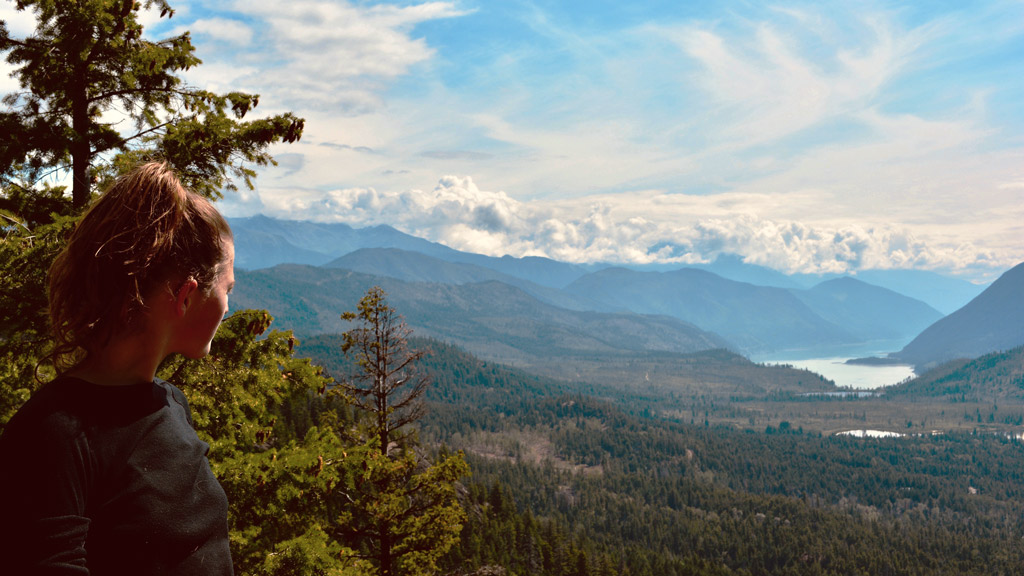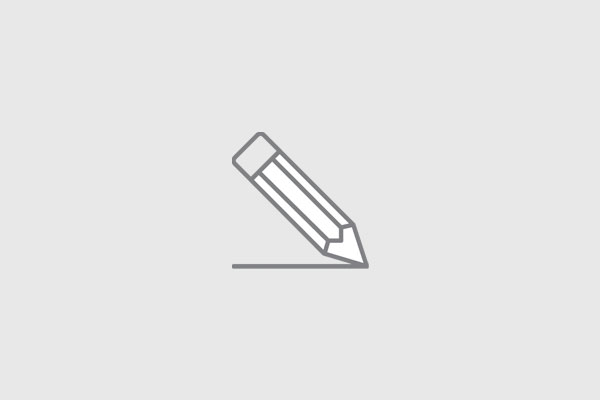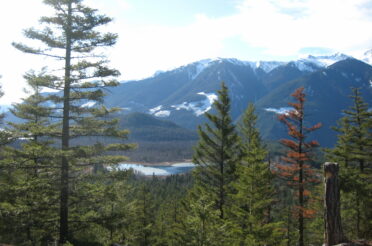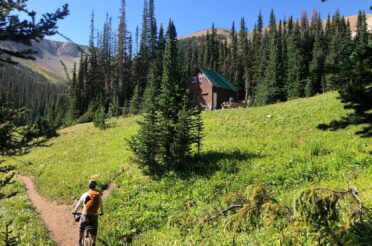
I grew up in a town where luxury was important. If your parents could afford fancy vacations every year, you had a head start in the social hierarchy. I would like to say that I never truly participated in this ridiculous culture. That I never truly ‘fit in’. However, that would be a bit of a lie. Until the moment I moved out and started to live on my own, I had an up-side-down perspective on values, priorities and life in general. As of today, my variables of living a ‘successful’ life changed dramatically. In this paper, I will discuss the painful truth that struck me: I am not taking responsibility for our environment. Finally, I will explain the simple thing you can do to save this planet: experience wilderness.
The last few years I have been learning about the many faces of nature. I learned about the smallest and biggest organisms, about trees that grow hundreds of years and flies living for a day, about symbiotic relationships between completely different species, about bizarre migrations all across the globe, about healing powers of nature, and I learned about the destruction of this miraculous planet by humankind. I came to understand how humans depend on the health of the planet more than anything. For clean water, clean air, food, medicine, for shelter, for intellectual, physical and spiritual challenges. The loss of these natural resources is the most urgent and pressing issue of our time.
This realization made me reflect on my own lifestyle. It made me question what I do, what I eat, where and how I go. I know that overconsumption exploits our planets finite resources (Gao & Tian 2016). I know that plastic pollutes the oceans and kills countless organisms, organisms we rely on (Cressey 2016). I know that fossil fuels pollute the air, not only that we breathe, but every single organism on this planet (Bach 1981). I know that pesticides and insecticides leave landscapes uninhabitable and destroyed (Carson 1962). I know that the meat and dairy industry pollute water and air, destroy ecosystems because of overgrazing and trampling, and it makes us believe nature is ours to exploit. (Westhoek et. al. 2014; Regan 1986) I know the arctic is melting (Helgesen et. al. 2015) This list is infinite. And, extremely sad.
Yet, I take the bus, I buy plastic, I buy non-organic food, I fly all over the world, I don’t use renewable energy, I over consume and invest in an environmentally-unfriendly society. I can say I care and understand, but the brutally honest reality is: I am not taking responsibility for our environment.
Perhaps you recognize this. Maybe you don’t want to recognize it. If we would to listen to this undeniable truth, it would force us into a less comfortable lifestyle. And if we are not willing to change our lifestyle, how will we ever save the earth?
Hope is certainly not lost. In fact, Hope is right outside our house. My Hope that humans will save ourselves from destroying the planet, is in the remaining wilderness all around us. There are infinite ways to connect with nature. Some even say that you can find it by simply looking within your own body (Turner 2013). We just need to learn how to see it and then, how to change our behavior.
How do we see and engage with nature? A first and fundamental step is to travel in HERO mode, a method created by the Transformational Travel Council (TTC). This can be anywhere from ‘travelling’ to the supermarket, to ‘travelling’ to another part of the world. It helps being in the moment, completely aware and being present. HERO stands for Heart, fully Engaged, with steady Resolve, and completely Open to the experience. Heart means feeling connected to your surroundings, care for yourself and the environment you’re in. It means being a steward of your environment. If you take a walk, what do you see? Try to look for wild things, like plants, birds, insects, the weather. Be vulnerable for these experiences and connect with it. Being fully Engaged is the next step. Try to go from being an observer, to being a participant. Try to feel part of your environment. Immerse yourself in it. Once you feel this, keep a steady Resolve. Try to actively search for challenges, push your boundaries a little and go explore. Take a route you haven’t taken before. Always wanted to go to that park but it’s a little far? Plan ahead and do it. Lastly, be Open. Let go of expectations and accept what you see and feel. Be open to the lessons of your experience and accept who you are. Both your flaws and strengths. Reflect on the things you learned and take meaningful actions. This is what travelling in HERO mode means.
Second, change the focus of your activities from gaining profit to gaining value. This is extensively discussed in Remarkable!, by Ross and Salyer (2016). Value-Centricity, as Ross and Salyer call it, within yourself is met when your values are centered in You, and your actions are based upon these values. When you and the people surrounding you have similar values, you can reach Value-Centricity on a more general level: you can synergize. By surrounding yourself with like-minded people, your combined motivations can create amazing outcomes, and inspire each other. It is also described as “The energy and momentum that can be produced when values [within yourself and between people] are properly aligned….When one’s perspective and priorities are aligned.” (Ross & Salyer 2016). Four critical factors of living a value-centric life are: 1) To create meaningful and clear values that inspire yourself and your surrounding; 2) To be and stay positive. This will keep yourself and others motivated to change something and live up to your values. Struggle with changing your own behavior? Try to create a challenging game. See it from a positive angle; 3) To sustain this “culture” of value-centricity and positivity. This will happen inevitably when the first two factors are reached; 4) To be responsible for your own actions and hold others accountable. Or better said: Live on Purpose. “Living On Purpose means: One is purposeful in their approach, passionate and undeterred about one’s purpose and focused on a purpose beyond self. This includes personal responsibility for one’s thoughts, feelings, and actions” (Ross & Salyer 2016). Eventually you’ll notice that when you shift your thinking to having ownership, having meaningful relationships, and continue to add value to your life, everything changes. “It becomes less about comparison, and more about contribution. It becomes less about competition, and more about collaboration.” Now you can truly change your environment. (Ross & Salyer 2016)
Lastly, to really be successful and effective in changing our own behavior toward our environment, I will briefly mention a few of The 7 Habits of Highly Effective People, by Stephen Covey (1989). This will help push us over the edge, and start living a meaningful, purposeful life. The first habit is Be Proactive. The key about being proactive is not blaming any external factors but dare to look to yourself. Try to be reflective. When I face a problem, for example: “Today, I took the bus and I don’t feel good about it.”, I can think two things: “Well, it was raining, so I couldn’t walk home.”, Or “I contributed to the pollution of the earth today, while I could have walked. There is no excuse for this. Next time, I will walk. Rain or shine.” In the latter, I take responsibility for my own actions. The next habit I’d like to discuss is habit three: Put First Things First. This is all about prioritizing. We have discussed the importance of ecosystem health for food, water, air, and well-being. Without them, we can’t live. For me, this is my top priority. And the purpose of this paper is to hopefully get it high on your list too. Think about your priorities. What is your life goal? Think about the things that are not your priorities. Why not? This is crucial for changing our behavior. If saving the planet is not on our priorities-list, then how can we feel motivated to change our behavior? But when it is, we are ready to work on it. Habit 3 is about life management–your purpose, values, roles, and priorities. In daily activities the question then becomes: Do I hold myself accountable for nature’s well-being? Finally, the last habit I find extremely helpful, is habit 5: Seek First To Understand, And Then To Be Understood. This is simple: educate yourself. Be aware of your impact. Knowledge is power (Covey 1989).
To summarize, when I listen to the undeniable truth that I am not taking responsibility of our environment I take the following steps: 1) I educate myself; 2) I reflect, I am honest and ask: do I hold myself accountable for nature’s well-being?; 3) I go out and experience, I plan it, I immerse myself in my surroundings. What life do I see, what do you hear, what don’t I hear/see? I allow myself to connect with it. But perhaps the most important step is: Dare to change. For me, that is what living a ‘successful’ life means: to be bold enough to change.
If you want to get involved with nature conservancy, visit: https://wilderness.stewardship.foundation/ to find out more.
Author: Elke, Netherlands
References
Bach (1981). Fossil fuel resources and their impacts on environment and climate. International Journal of Hydrogen Energy, 6(2), 185-201.
Carson (1962). Silent spring. Boston: Cambridge, Mass.: Houghton Mifflin; Riverside Press.
Cressey (2016). THE PLASTIC OCEAN. Nature, 536(7616), 263-265.
Gao & Tian. (2016). Analysis of over-consumption of natural resources and the ecological trade deficit in China based on ecological footprints. Ecological Indicators, 61, 899-904.
Helgesen et. al. (2015). The ice is melting: Ethics in the Arctic. Bergen: Fagbokforlaget.
Ross & Salyer (2016). Remarkable!: Maximizing Results through Value Creation. Michigan: Baker Books.
Turner (2013). The Wild and Self. Kahn & Hasbach (eds.), The Rediscovery of the Wild., 7-50. Massachusetts: The MIT Press.
Westhoek et. al. (2014) Food choices, health and environment: Effects of cutting Europe’s meat and dairy intake. Global Environmental Change, 26, 196.
Covey (1989). The 7 Habits of Highly Effective People. New York: Free Press.
Other sources
Transformational Travel Council website: https://www.transformational.travel/guiding-practices



